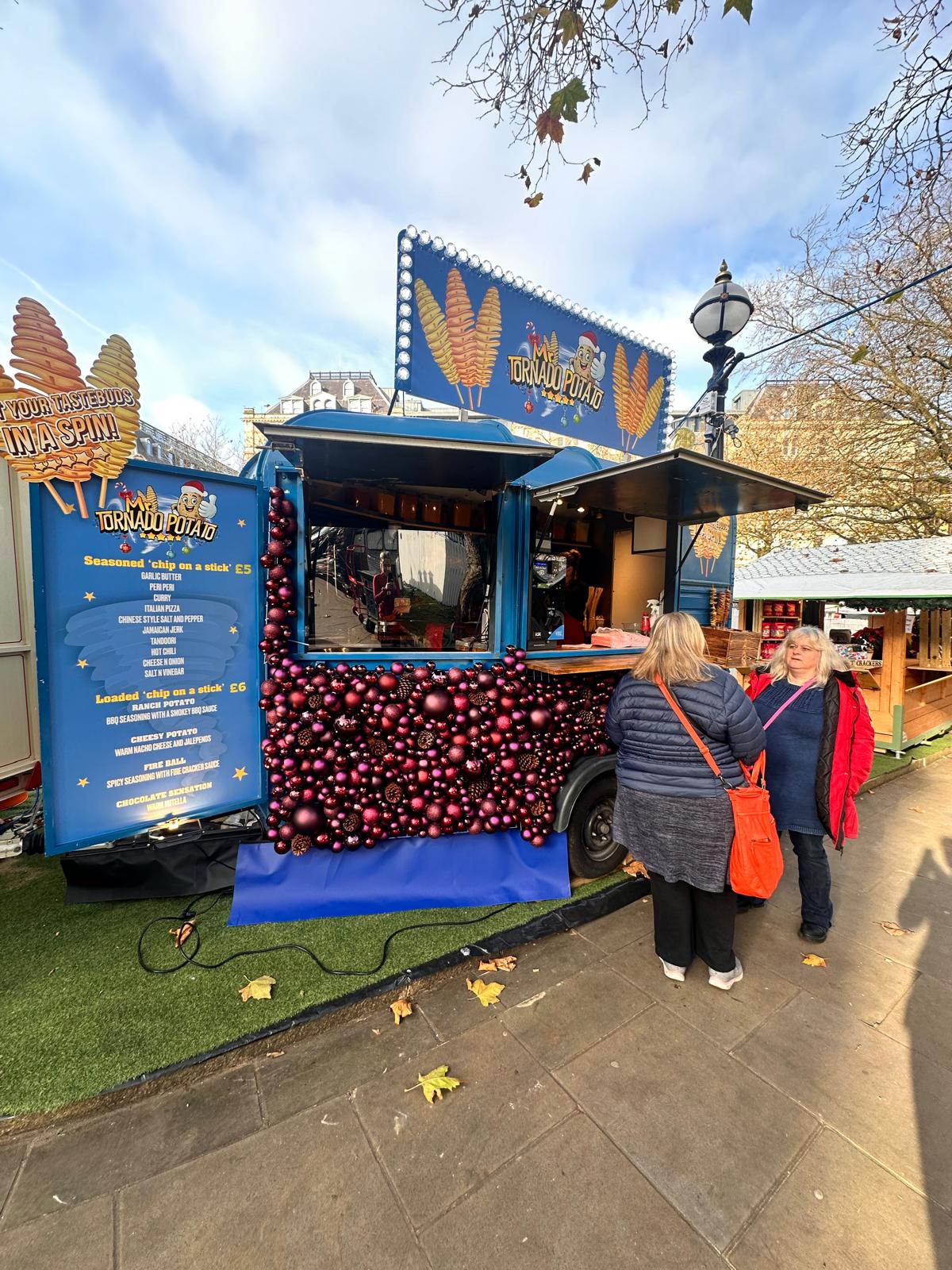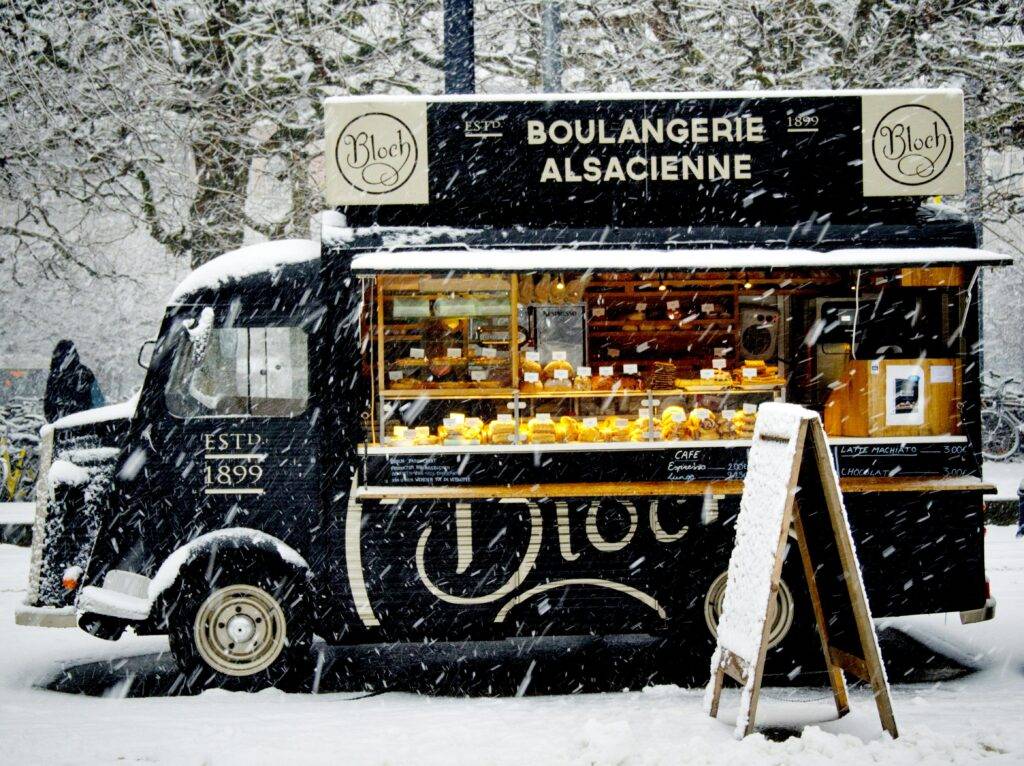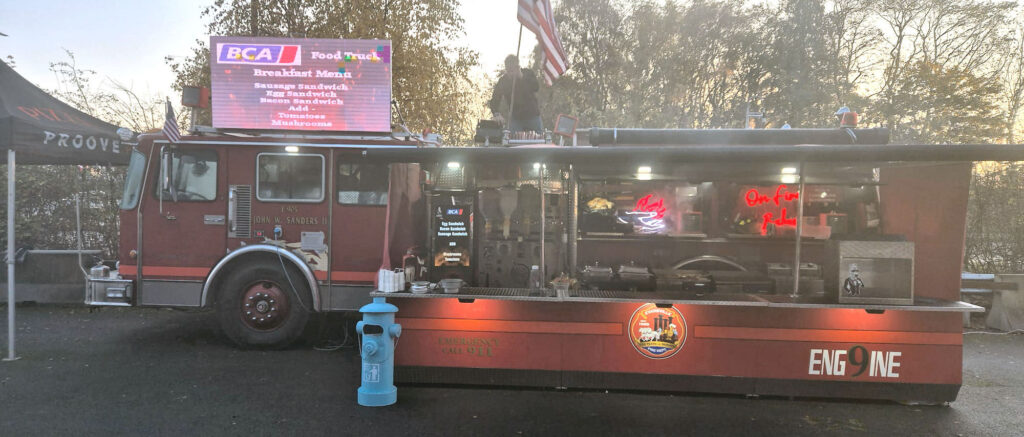Exploring the Rise of Food Trucks

The rise of food trucks has become a culinary phenomenon. They’ve transformed the way we perceive street food, bringing a fresh and innovative approach to the dining scene.
But what’s behind this rise in food truck culture? It’s more than just a trend. It’s a reflection of our evolving lifestyle and tastes.
Food trucks offer a unique blend of convenience, variety, and creativity. They’ve become a symbol of urban culture, serving up a diverse array of cuisines and flavors.
For marketing managers, food trucks present a rich source of content. They offer a unique narrative that resonates with consumers, standing out in a saturated market.
For wedding planners, food trucks offer a unique catering solution. They add a wow factor to events, creating memorable dining experiences.
Join us as we explore the rise of food trucks, their impact on the food industry, and their potential for future growth.

The Origins and Evolution of Food Truck Culture
The origins of food truck culture trace back to the late 19th century. Charles Goodnight, a Texas rancher, famously converted a wagon to feed cowboys on long cattle drives.
Fast forward to the 1950s, ice cream trucks became a staple, capturing children’s imaginations on suburban streets. These mobile vendors laid the foundation for modern food trucks.
The 2000s saw a revolution in food truck offerings. Gourmet options popped up across urban landscapes, blending quality ingredients with innovative culinary techniques.
Diverse cultures converged through food trucks, breaking traditional culinary barriers. From Korean tacos to vegan sliders, these vendors introduced bold flavors to curious palates.
Today, food trucks reflect the dynamic nature of street food innovation. They adapt quickly to culinary trends, transforming how we experience dining in urban environments.
Why Food Trucks Have Captured Our Hearts (and Appetites)
Food trucks have captured our imaginations with their ever-changing, eclectic offerings. Their unique charm lies in the promise of discovering something new. Each visit holds potential surprises, turning everyday meals into adventures.
These mobile eateries offer a vast array of cuisines. Whether you crave spicy Thai, savory Mexican, or comforting grilled cheese, there is often a truck to satisfy any craving. This diversity fuels our love for food trucks, ensuring there’s always something to fit our whims.
Their convenience cannot be overstated. Located in bustling downtown areas or at local festivals, food trucks bring lunch or dinner right to the customer’s doorstep. Their flexibility in location makes them accessible to busy urbanites and weekend explorers alike.
Food trucks also foster a sense of community. Gathering around them creates a casual atmosphere, where strangers become friendly through shared culinary experiences. These social interactions enrich our dining, making it more than just about food.
Moreover, the connection between owner and customer deepens the appeal. Many food truck owners share personal stories and culinary adventures through their menus, offering more than just meals — they offer authentic experiences.

The Economic Recipe for Food Truck Success
Running a food truck can be more cost-effective than opening a traditional restaurant. The overhead costs are typically lower. This allows aspiring chefs to bring their culinary dreams to life without breaking the bank.
A key component of food truck success is location flexibility. Trucks can move to areas with high foot traffic, maximizing potential sales. This adaptability is crucial for seizing opportunities and minimizing risks.
The business model also enables diverse revenue streams. In addition to street-side service, many food trucks offer catering services for events. This expands their market reach significantly.
Key advantages of starting a food truck include:
- Lower startup costs compared to brick-and-mortar restaurants.
- Ability to reach customers in multiple locations.
- Opportunities for event catering and pop-up experiences.
The burgeoning popularity of street food also plays a role in economic success. Urbanites and foodies are constantly on the hunt for unique dining experiences. Food trucks fill this niche perfectly, driving profitability and growth.
The Social Media Engine Driving Food Truck Popularity
Social media has revolutionized the way we discover and interact with street food. Platforms like Instagram and Twitter have become the modern-day word-of-mouth. Food trucks leverage these platforms to build buzz around their offerings.
A mouth-watering photo can go viral in minutes. Eye-catching images shared online entice followers to seek out the trucks. This visual appeal is a key factor in attracting new customers.
Promotional strategies include posting daily menus and sharing real-time location updates. Customers feel involved in the food truck journey. This engagement fosters a sense of community and brand loyalty.
Social media also facilitates food truck collaborations and partnerships. By teaming up with influencers and other local businesses, trucks can expand their reach. This creates exciting culinary events and extends their fan base.

Navigating the Challenges: Regulations and Location
Operating a food truck isn’t just about cooking delicious food; it involves navigating a maze of regulations. Local laws can be complex and vary significantly from one area to another. Truck owners must stay informed to avoid costly fines and operational hiccups.
Location is another critical factor in the food truck business. The right spot can mean the difference between success and struggle. High foot traffic areas are prime locations, but they often come with stiff competition and permit battles.
Securing permits for these coveted spots is not always straightforward. This process requires time, patience, and a good understanding of local regulations. Some cities have strict zoning laws that limit where food trucks can park.
Truck owners often develop strategies for mobility to overcome these challenges. They may rotate locations to reach different customer bases, ensuring they stay viable while complying with local restrictions. Flexibility, in many ways, becomes a key ingredient to their success.
Food Trucks as Community Catalysts and Cultural Beacons
Food trucks don’t just deliver meals; they create community hubs. These mobile kitchens often serve as gathering points where people come together, fostering social interactions that might not occur otherwise.
Beyond social spaces, food trucks represent a rich tapestry of cultural expression. They bring diverse cuisines to neighborhoods, introducing locals to new flavors and traditions. This cross-cultural exchange enhances the culinary landscape, making every bite a potential discovery.
Food truck festivals are vibrant examples of how these businesses catalyze community engagement. Such events turn streets into lively marketplaces filled with aromas, sounds, and sights that draw crowds from all walks of life. The sense of shared experience among attendees becomes a powerful community bond.
Moreover, food trucks can spotlight local causes and support nonprofit initiatives. They often partner with local charities, schools, and events, using their platform to promote giving back. In doing so, they become respected and cherished parts of the community.
Marketing Strategies for Food Truck Fame
To rise above the competition, food trucks need a strong brand identity. Clever names, eye-catching designs, and memorable logos create buzz and draw curious customers. A consistent brand message helps form a loyal following.
Social media is a powerful tool in the marketing arsenal for food trucks. Instagram, Facebook, and Twitter allow direct engagement with foodies. Posting enticing food photos, event details, or daily specials keeps the audience engaged and excited.
Collaborations can boost a food truck’s exposure, too. Partnering with local businesses like breweries or coffee shops merges audiences and creates unique dining experiences. These synergistic efforts can introduce the truck to new customers, expanding its reach.
Additionally, exceptional customer service fosters word-of-mouth marketing. Satisfied customers share positive experiences both in person and online. This organic promotion is invaluable, attracting new patrons and encouraging repeat visits. Through these strategic moves, food trucks can not only survive but thrive in the market.
Food Trucks and Weddings: A Match Made in Culinary Heaven
Imagine saying “I do” and then indulging in gourmet tacos under the stars. Food trucks bring a unique and informal charm to weddings, offering versatility and a touch of whimsy. They add a personal flair, making any reception memorable for all.
The allure of food trucks at weddings lies in their ability to cater to diverse tastes. From sushi to sliders, they provide a feast for every palate. Guests can enjoy freshly made dishes tailored to their preferences and dietary needs, enhancing the dining experience.
Hiring a food truck can also make economic sense for wedding planners. It often costs less than traditional catering, offering a more budget-friendly option without sacrificing quality. This savings can then be used to enhance other aspects of the event, creating an overall richer experience.
Consider these benefits of incorporating food trucks at your wedding:
- Customizable menu options for varied tastes
- Interactive cooking and serving experience
- Unique and Instagram-worthy photo opportunities
These culinary pop-ups create a relaxed and joyful atmosphere, perfect for celebrating love. Whether in a garden or urban setting, food trucks add a sprinkle of fun to weddings, making them an inspired choice for those seeking something extraordinary.
The Future of Food Trucks: Trends and Predictions
The horizon for food trucks glimmers with culinary innovations and technological advancements. Food trucks are poised to embrace eco-friendly practices, prioritizing sustainability. From biodegradable packaging to solar-powered equipment, these mobile kitchens are reducing their ecological footprint.
As consumer preferences evolve, so will menu offerings. Expect to see more diverse and health-conscious options, with trucks catering to niche diets like keto, paleo, and vegan. Seasonal and locally-sourced ingredients will continue to dominate, offering fresh flavors.
Technological integration will revolutionize the food truck business model. Apps that allow pre-ordering and track truck locations offer unprecedented convenience for customers. This tech-savvy approach will likely increase customer engagement and streamline operations.
The social aspect of dining will also grow. Food trucks will become platforms for community engagement, collaborating with local artists and musicians. These trends ensure that food trucks won’t just remain a novelty; they’ll be an enduring feature in the culinary landscape.
Conclusion: The Lasting Impact of Food Truck Culture
Food Truck Culture has revolutionized the way we experience food. It broke down conventional dining barriers, offering bold flavors and diverse cuisines. Food trucks became symbols of innovation and entrepreneurship in the culinary world.
Their influence extends beyond street corners, infiltrating event spaces, weddings, and marketing strategies. They bring communities together, creating shared experiences and fostering connections. By showcasing local ingredients and supporting small businesses, they bolster local economies.
As trends shift and evolve, food trucks remain adaptable, ready to meet new challenges. They highlight the future of dining: dynamic, inclusive, and creative. The cultural and economic ripples will endure for years to come.
